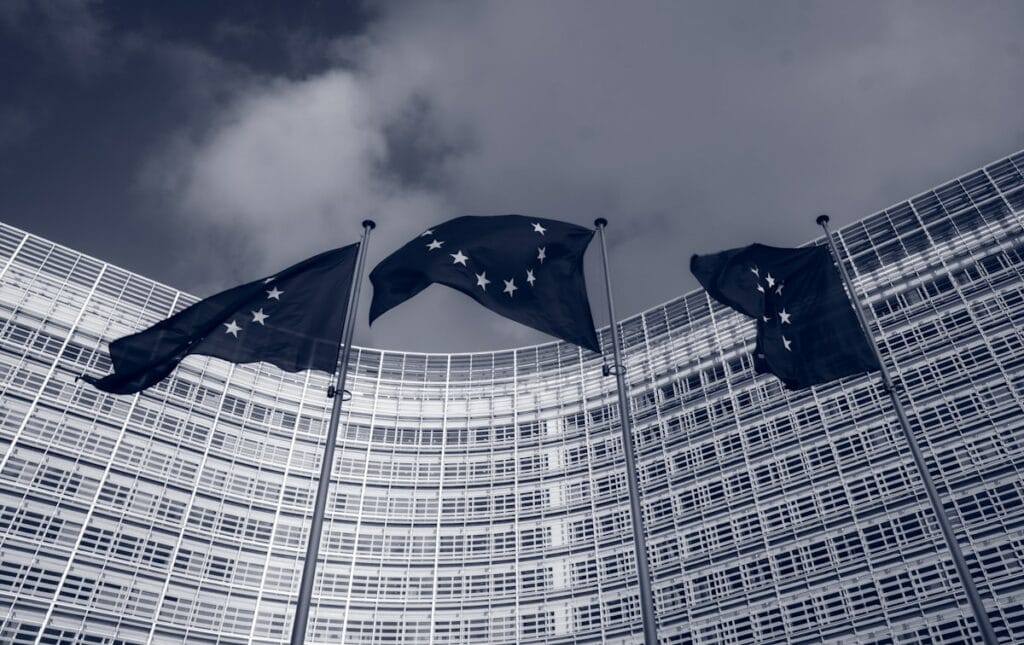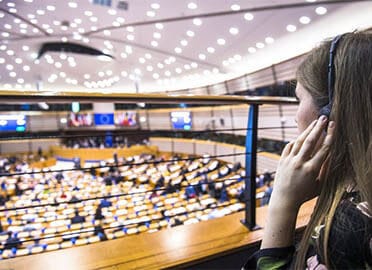EU Focus- Europe’s Strong Plan in Response to Washington’s US Tariffs
EU Focus looks into Europe's response to Washington's US Tariffs. The EU's approach combines a strong plan and readiness to defend its economic interests with a commitment to seeking amicable solutions through negotiation.

Brussels, April 2, 2025 — In the latest escalation of transatlantic trade tensions, the European Union has signalled a firm yet calibrated readiness to respond to the United States’ sweeping new tariffs. While Brussels remains committed to dialogue, officials are quietly assembling a robust counterstrike aimed at defending the bloc’s strategic interests.
The European Union (EU) is actively preparing to address the challenges posed by the recent tariffs imposed by the United States. European Commission President Ursula von der Leyen has emphasized that while the EU prefers a negotiated resolution, it has developed a “strong plan” for retaliation if necessary.
The EU will continue to seek negotiated solutions, while safeguarding its economic interests. As a major trading power and a strong community of 27 Member States, we will jointly protect our workers, businesses and consumers across our European Union.
EU Commission President Ursula von der Leyen
President Donald Trump’s administration, now deep into its second term, has revived its signature tariff diplomacy. A new wave of levies—25% on European automobiles and steel, and potential hikes on wine, spirits, and luxury goods—has reignited fears of a broader trade war.

EU Commission President Ursula von der Leyen described the measures as “economically short-sighted and strategically self-defeating,” yet stopped short of announcing immediate retaliation.
Behind the scenes, however, the EU’s playbook is already confirmed.
Senior officials have drawn up contingency measures targeting sectors where the United States enjoys a comparative advantage, including digital services, technology licensing and public procurement. While Brussels is avoiding a tit-for-tat escalation, it appears equally unwilling to be caught flat-footed.
Von der Leyen confirmed the existence of a strong plan, which could include restrictions on access to EU government contracts and potential adjustments to the bloc’s digital services tax regime—moves that would disproportionately impact Silicon Valley giants.
“Europe is not looking for a fight,” said a senior EU trade diplomat, “but we will not sit idly by while key industries are subjected to unilateral aggression.” Analysts suggest that the Commission is also considering broader measures that could affect agricultural imports from the US, as well as coordinated action through the World Trade Organization.
The new American tariffs come at an awkward moment for the EU. Ireland has voiced particular concern about the knock-on effects of tariffs on its pharmaceutical and food exports, both major contributors to its trade surplus. While some member states advocate restraint, others, particularly France, have pressed for a firmer line.

Paris has long viewed American tariff threats as part of a broader effort to undermine European economic sovereignty and may find in this crisis an opportunity to accelerate the bloc’s plans for strategic autonomy.
EU Response to U.S. Tariffs
The EU’s approach combines readiness to defend its economic interests with a commitment to seeking amicable solutions through negotiation.
- Preparedness for Retaliation: The EU is ready to implement countermeasures targeting U.S. exports, particularly in sectors where the U.S. holds a trade surplus, such as services provided by major technology firms. Potential actions include suspending certain intellectual property rights and excluding U.S. companies from public procurement contracts.
- Emphasis on Negotiation: Despite preparing for possible retaliation, the EU’s primary objective remains to resolve the dispute through dialogue. Von der Leyen highlighted that tariffs could exacerbate inflation and lead to job losses, underscoring the importance of finding a mutually beneficial solution.
- Impact on Member States: Individual EU countries are assessing the potential effects of the U.S. tariffs. For instance, Ireland is concerned about significant economic repercussions, particularly in its pharmaceutical, food, and beverage industries, which could result in substantial job losses and economic downturn.
The EU’s approach combines readiness to defend its economic interests with a commitment to seeking amicable solutions through negotiation. Brussels must walk a tightrope: assertive enough to protect its economic base, cautious enough to avoid inflaming nationalist sentiment or alienating allies.
For now, Europe waits, resolute but ready for talks. Whether Washington’s tariff gambit proves to be a tactical feint or a prelude to a change of perspective may well determine the tone of transatlantic relations for years to come.
Do you want to share your story and inspire our readers ? Know that YOUR EXPERTISE is paving the way for a fairer, happier society.



